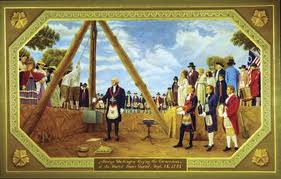 In this second episode of the “Matters of Perspective” series, Charles Randall Paul reads his May 2009 Sunstone article, “The Sacred Secret Open to All: Ye Are Gods,” a wonderful exploration about the concerns many people have with the secrecy related to Mormon temples and how Latter-day Saints might do a better job communicating about what goes on there. Drawing on historical sources, Paul demonstrates a reversal in public perspectives about secret/sacred rites that has taken place in the past two centuries—a shift from seeing those who participate in rites such as the Eleusinian mysteries or Freemasonry as highly trustworthy (until this shift one could hardly hold high political office were one not initiated into the rites) to highly suspect. Why has this taken place? And in the case of Mormon temple rituals, can this distrust be reversed with different messaging that better shares what goes on in the LDS temple, especially through contextualizing them as fitting the genre of “ascent literature,” myths and rites that tell the secret sacred story of humankind? Are there ways to better communicate why Latter-day Saints consider temple work as wonderful and affirming for “all” people? Can Mormons re-structure aspects of its temples as sacred centers to make them more welcoming to everyone?
In this second episode of the “Matters of Perspective” series, Charles Randall Paul reads his May 2009 Sunstone article, “The Sacred Secret Open to All: Ye Are Gods,” a wonderful exploration about the concerns many people have with the secrecy related to Mormon temples and how Latter-day Saints might do a better job communicating about what goes on there. Drawing on historical sources, Paul demonstrates a reversal in public perspectives about secret/sacred rites that has taken place in the past two centuries—a shift from seeing those who participate in rites such as the Eleusinian mysteries or Freemasonry as highly trustworthy (until this shift one could hardly hold high political office were one not initiated into the rites) to highly suspect. Why has this taken place? And in the case of Mormon temple rituals, can this distrust be reversed with different messaging that better shares what goes on in the LDS temple, especially through contextualizing them as fitting the genre of “ascent literature,” myths and rites that tell the secret sacred story of humankind? Are there ways to better communicate why Latter-day Saints consider temple work as wonderful and affirming for “all” people? Can Mormons re-structure aspects of its temples as sacred centers to make them more welcoming to everyone?
Several aspects of this article were discussed in Mormon Matters episodes 75-76, “Communicating about the Temple.” We encourage you to listen/re-listen to that exceptional episode.
A print version of Paul’s original article can also be accessed and read HERE.


Comments 6
A very interesting article. Thank you for posting this reading.
I won’t denigrate any type of ritual that people find helpful in realizing our brotherhood and sisterhood with the rest of the human race. But it seems contradictory to expect trust in the face of any type of secrecy. The natural question is, of course, this: if Mormons will not trust non-Mormons with something, why should non-Mormons trust Mormons with anything?
I didn’t hear an answer to this question. The author seems to challenge the legitimacy of the question, pointing out that people can, if they wish, extend a large measure of trust to other people who keep ritual secrets. He points to historical precedents like the Eleusinian rites in the classical world and Masonic rites in early America. But he fails to point out why people would choose to extend such trust.
I don’t blame him for not explaining it. I can’t explain it either.
He also fails to point out that the Eleusinian and Masonic rituals are no longer considered either secret or sacred. The first is a historical artifact. The second is simply a benevolent club. In this light, the author’s precedents don’t bode well for Mormonism, or at least for its temple rituals.
Ooh. Thank you for reading this essay. I have had no desire to go to the temple for over the past year. Not for any doctrinal or anything that I find offensive – simply just the fact that I get nothing out of the ritual.. I want to go back now. Thank you – mike
Hello Mike, I have not gone to the temple for over 30 years because I find the ritual far from spiritual and rather boring. I have no desire to go back, either. When I found out that the part of the Protestant minister was added by Brigham Young at a later date and again removed in 1990 because it upset new converts going to the temple for the first time, I felt that the ceremony has little to do with God’s love or Christ’s sacrifice. Perhaps you should read why so many changes came about in 1990 pertaining to temple ritual.
I always enjoy a perspective from Charles Randall Paul. This one is a classic.
My understanding was that it wasn’t the secrecy alone that is viewed with questions, it’s that too often we find ugliness behind that veil. As a non-mormon, the shift for me was when I learned about the genital touching part of the ritual. While I understand that part has been removed now, it was only after the internet dispersed that information, when a few bold souls ventured to tell the secret. Too often the Mormon church makes things about what they are not: they spin arguments out of side issues. This isn’t about the fact of secrecy, but what the secrecy hides, and the moral authority of leaders who use these sorts of tactics. The fact is that there is no major world religion that uses secret rituals, and there are reasons for this. If something can’t be done in the light it shouldn’t be done. There was a real famous man who said that, about 2,000 years ago.
A beautiful message